Judi Lynn
Judi Lynn's Journallvaro Colom, Guatemalan President Who Fought for the Indigenous, Dies at 71
He expanded access to education and health care in Indigenous villages and provided aid to the poor in a country scarred by deep inequalities and decades of civil war.

Álvaro Colom, after being sworn in as president of Guatemala in 2008. He tried to ameliorate the country’s deep economic divides.Credit...Roberto Escobar/European Pressphoto Agency
By Elisabeth Malkin
Jan. 27, 2023, 12:55 p.m. ET
MEXICO CITY — Álvaro Colom, who as president of Guatemala from 2008 to 2012 put the country’s forgotten Indigenous communities at the center of his government but faced fierce opposition from the elites, died on Monday at his home in Guatemala City. He was 71.
His death was confirmed by his niece Alejandra Colom, who said he had been treated for esophageal cancer.
Mr. Colom expanded access to education and health care in a country scarred by deep inequalities and decades of civil war. But his time in office was shadowed by a bizarre scandal in which he was accused of assassination and eventually exonerated by a United Nations-backed anti-corruption commission.
He also faced the growing reach of Mexican drug cartels, particularly the Zetas, that had allied with local criminal gangs to traffic cocaine. He supported a crusading attorney general who worked with the anti-corruption commission to arrest some of the country’s most violent criminals.
More:
https://www.nytimes.com/2023/01/27/world/americas/alvaro-colom-dead.html
Or:
https://archive.ph/TFUdd#selection-493.0-497.287
Hundreds of children packed in El Salvador's overcrowded prisons -rights group
By:Reuters
Updated: Jan 26, 2023, 23:52 CST•2min read
(Reuters) – Human Rights Watch (HRW) accused Salvadoran authorities on Friday of “mass due process violations” in the detention of tens of thousands of people, including hundreds of children, in over-crowded prisons, citing leaked government data.
The rights watchdog said following the introduction of a state of emergency suspending key rights to address gang violence in March last year, tens of thousands had been put into overcrowded prisons for “broadly defined crimes”.
. . .
HRW said the database was from the country’s public safety ministry and listed people prosecuted between March and August last year. It showed that close to 1,082 children, largely boys, had been sent to pre-trial detention as of August, HRW said.
This was made possible under a March 2022 law that lowered the age of criminal responsibility in gang-related crimes from 16 to as young as 12, it added.
More:
https://www.fxempire.com/news/article/hundreds-of-children-packed-in-el-salvadors-overcrowded-prisons-rights-group-1266880

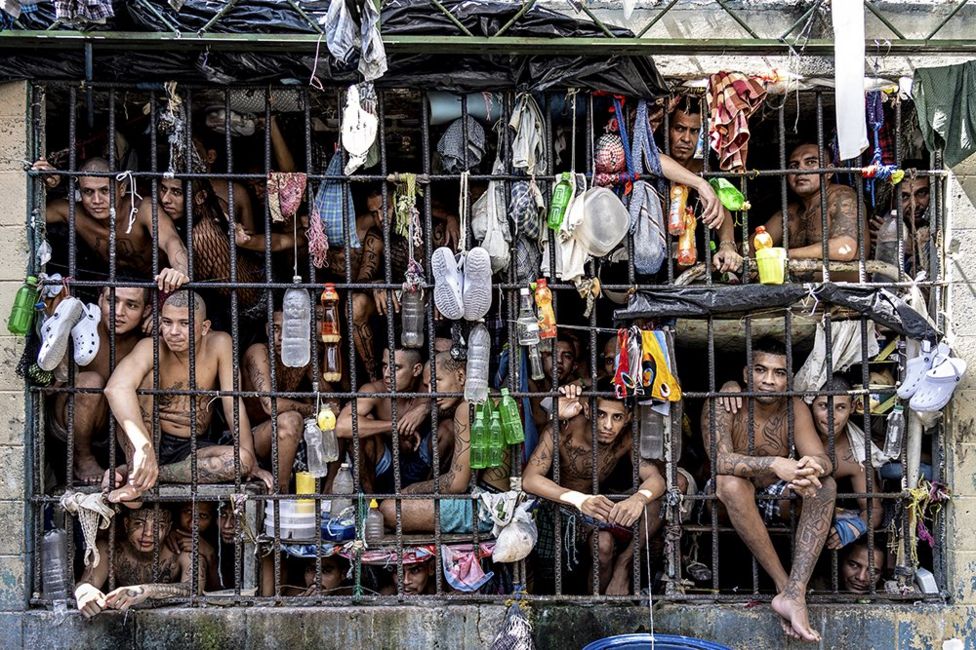



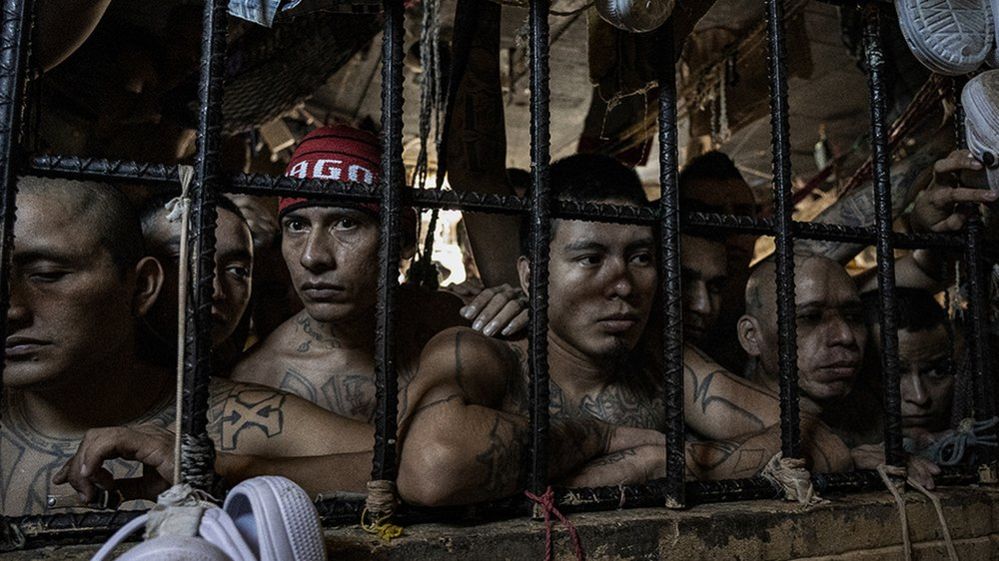
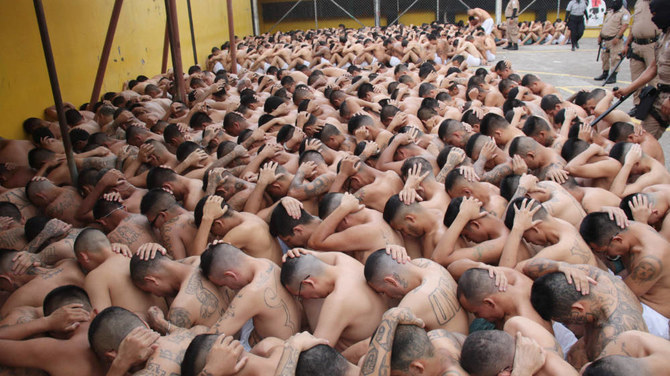
Is this a place any parent on the planet would want to discover his 12 year-old son had been sent?
Lula Administration to Seek Climate Justice in Brazil
Adriana Abdenur, climate and diplomacy expert and executive director of Plataforma Cipó, stresses the need for Brazil to ratify the Escazú Agreement, which protects environmental defenders
Jan.20.2023 5:48PM
Cristiane Fontes
OXFORD
In Lula's address to COP27 (2022 UN Climate Change Conference in Egypt), shortly after his election, he made it very clear that the climate agenda will play a key role in Brazil's diplomatic relations.
'I would like to say to you all that Brazil is back. Brazil is back to resume its ties with the world', he said at the event, in which he also suggested holding an Amazon Summit Meeting, and put Brazil forward as a candidate to host COP30 in 2025.
For Adriana Abdenur, executive director of Plataforma Cipó [Vine Platform, in a free translation], a research institute focused on climate, governance, and peace issues, hosting such events is an important part of rebuilding Brazil’s foreign policy agenda — a priority for the new government.
Plataforma Cipó also coordinated and published a study titled 'Climate and International Strategy: New Directions for Brazil'. The final paper — presented to Lula at COP27 — results from consultations with 70 players from different sectors of society, including groups that traditionally do not have much voice in foreign policy discussions, such as women, Black and Indigenous peoples, the LGBTQIA+ community, and a number of institutions outside the Brasília-Rio de Janeiro-São Paulo axis.
More:
https://www1.folha.uol.com.br/internacional/en/scienceandhealth/2023/01/lula-administration-to-seek-climate-justice-in-brazil.shtml
Environmental Crime and Organised Crime Go Hand in Hand in the Amazon, Says Researcher
Aiala Colares, coordinator of a study on violence in the North of Brazil, argues that public security and forest conservation should share the same agenda
Jan.18.2023 12:39PM
Cristiane Fontes
OXFORD
The alliances and overlaps between organised crime and environmental crime are at the core of the studies developed by Aiala Colares, a professor and researcher at the State University of Pará (UEPA). Between 2019 and 2021, he coordinated a study on this topic in partnership with the Brazilian Public Security Forum.
His work highlights criminal groups' expansion into the North region, including traditional communities' territories.
‘Both Comando Vermelho [Red Command] and Primeiro Comando da Capital [First Capital Command, or PCC] have operations in the states of Pará, Amazonas, and others in the region. We have also identified the emergence of local and regional factions with some sort of link with these groups from the Southeast', says Colares, who is also a militant in the Quilombola and Black movement.
Colares’s study was released in June as part of the Brazilian Public Security Yearbook, and was further publicised and discussed during COP27 (UN Climate Change Conference held in Egypt in November). It links this [expanded presence of criminal organisations] to the unbridled increase in homicide rates in the Amazon.
More:
https://www1.folha.uol.com.br/internacional/en/scienceandhealth/2023/01/environmental-crime-and-organised-crime-go-hand-in-hand-in-the-amazon-says-researcher.shtml
Yanomami Genocide: Prospectors and Authorities Are Investigated
Inquiry opened at the request of the Justice Minister will focus on several people responsible for the health crisis on indigenous lands, including prospectors and politicians
Jan.26.2023 1:23PM
Vinicius Sassin
BOA VISTA
The Federal Police investigation into the crime of genocide committed against the Yanomami people, determined by the Justice and Public Security Minister Flávio Dino, will focus on investigating the responsibilities of prospectors, mining logistics operators, health coordinators for the indigenous people, and political agents.
The investigation was opened and should be conducted by police officers who work in the Federal Police superintendence in Roraima, where most of the indigenous land is located and where illegal mining mobilizes thousands of invaders in the traditional territory.
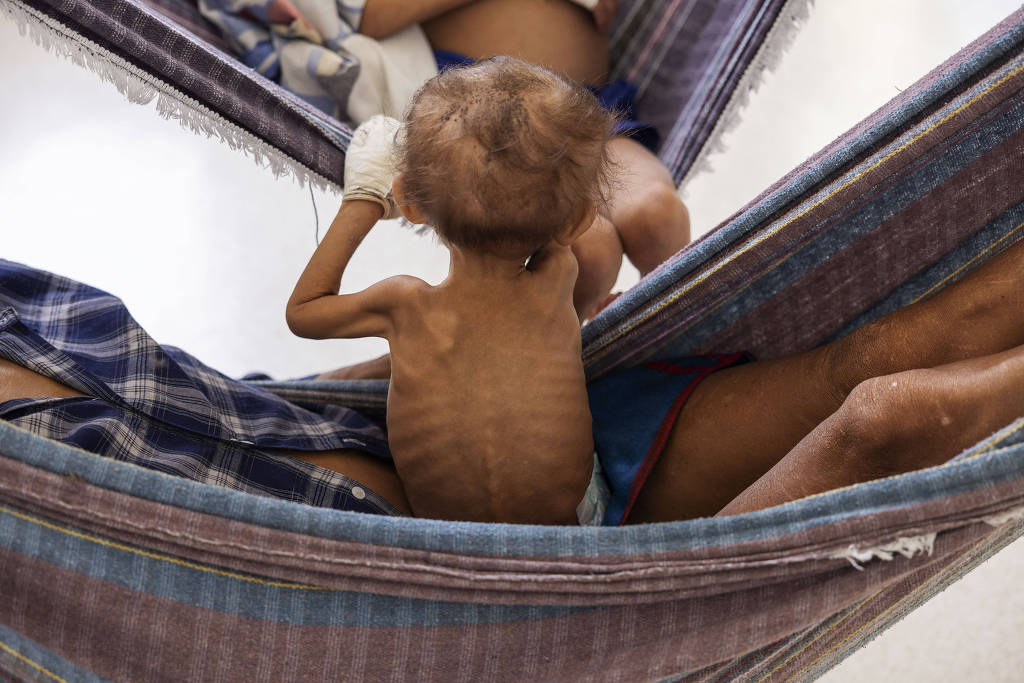
Boa Vista, RR. 25/01/2023. Inquiry into the Yanomami genocide investigates accountability of prospectors, indigenous health, and politicians ( Foto: Lalo de Almeida/ Folhapress ) BRASIL
The initial understanding of the police is those gold prospectors –both those who are exploring for gold directly in the indigenous land and those who own machinery and aircraft for criminal practice– will be investigated and eventually held accountable in the genocide inquiry.
In Brazil, Law 2,889/1956 defines genocide as acting with the intention of destroying, in whole or in part, a national, ethnic, racial, or religious group. The penalty can reach 30 years in prison.
More:
https://www1.folha.uol.com.br/internacional/en/scienceandhealth/2023/01/yanomami-genocide-prospectors-and-authorities-are-investigated.shtml
Indigenous Peoples' Rights Approved in UN Resolution
On Monday 19 December, the United Nations General Assembly approved a resolution that commits states to protect the individual and collective rights of indigenous peoples.
January 25, 2023

By Redacción Bolivia
On Monday 19 December, the United Nations General Assembly approved a resolution that commits states to protect the individual and collective rights of indigenous peoples.
The document, presented by Bolivia and prepared by this country in collaboration with Ecuador, is the first official recognition of the right of indigenous peoples to self-determination of their ways of life and traditions.
The resolution is called Indigenous Peoples’ Rights, was presented with the support of 47 countries and was approved by consensus. It is worth noting that, in the same resolution, it is agreed to always use capital letters in UN documents when referring to Indigenous Peoples.
The adoption of this resolution is one of the first actions that commit States within the framework of the International Decade of the World’s Indigenous Languages, also proclaimed by the UN on 16 December, which aims to guarantee the right of indigenous peoples to preserve, revitalise and promote their languages, as well as to integrate linguistic diversity and multilingualism into sustainable development efforts.
https://goodmenproject.com/featured-content/indigenous-peoples-rights-approved-in-un-resolution/
Where's Chile's neo-right coming from?
25 January, 2023
A strange creature has emerged in Chilean politics. The neo-right claims to be center left but pushes narratives and policies of the right. Its members are ex-something who failed to adapt. It is curious what happens in Chile with some politicians who fail to assimilate their political options and decisions; it’s cringeworthy to seem them being uncomfortable in someone else’s suit. It also seems they live on past glories; on what they used to be, lost, but want to recover. These politicians seem trapped in a glorified past. They’re ex-something – -Christian Democracts, -radicals, -lawmakers, -ministers, or other -government members.
Who is that?
They get together and recognize their trajectories, sign three or four declarations a year to defend someone of their group or to attack someone else. They form small movements and try to found parties, but fail because they lack public support and signatures. Most of them are older than 50 and not representative of Chile’s diverse society. They’re just part of an entrenched political elite.
They are also conservative and don’t like changes, some of them, especially ex-Christian Democrats, even opposed divorce and, of course, abortion. Members of this club claim to have stayed true to themselves while others changed, forgetting that new generations arose. And yet, they claim they are center-left, based on what they were rather than what they are. This is simply an identity conflict.
These folks crossed the political oceans aimlessly until the Constitutional Convention – tasked with hammering out a new Constitution, whose draft was rejected by 62% in a plebiscite – started work. Debate on critical points in the draft catapulted them into the spotlight and provided purpose.
More:
https://chiletoday.cl/wheres-chiles-neo-right-coming-from/
After the opening of the article, having awareness of years of NY Times' previous LatAm reporters,
I felt it would be appropriate to look around a little for more information on the NY Times previous work on recent Brazil events, found the following article:
MARCH 8, 2021
NYT Fails to Examine Its Participation in Brazil’s ‘Biggest Judicial Scandal’
BRIAN MIER
The Brazilian Supreme Court on March 8 dismissed all charges against former President Luis Inacio “Lula” da Silva made during the Lava Jato investigation, a little over a month after the investigation was officially ended. The termination came shortly after the Supreme Court admitted 6 terabytes of leaked Telegram chats between public prosecutors and judges as evidence in the case.
A small portion of the leaks, released slowly by the Intercept Brasil and local media partners in 107 articles, revealed that Judge Sergio Moro illegally instructed prosecutors in cases he was ruling on; these leaks also exposed dozens of secret, illegal meetings with agents of the US FBI. Lula’s defense lawyers have now released new, devastating information, in the context of a series of motions to dismiss.
In one conversation, Lava Jato taskforce chief Delton Dallagnol refers to Lula’s imprisonment as a gift from the CIA. The leaks also show that many coerced plea bargain testimonies were totally fabricated, including a frivolous case that resulted in the suicide of the dean of Santa Catarina Federal University, and that Dallagnol nicknamed them “outsourced testimonies.”
None of these revelations came as a surprise to Brazilians who have been reading legal blogs and the major independent media for the last five years. Many groups have been critical of Lava Jato from the moment Sergio Moro first froze operations at Brazil’s five largest construction companies in 2015.
More:
https://fair.org/home/nyt-fails-to-examine-its-participation-in-brazils-biggest-judicial-scandal/
Peru protests: What to know about Indigenous-led movement shaking the crisis-hit country
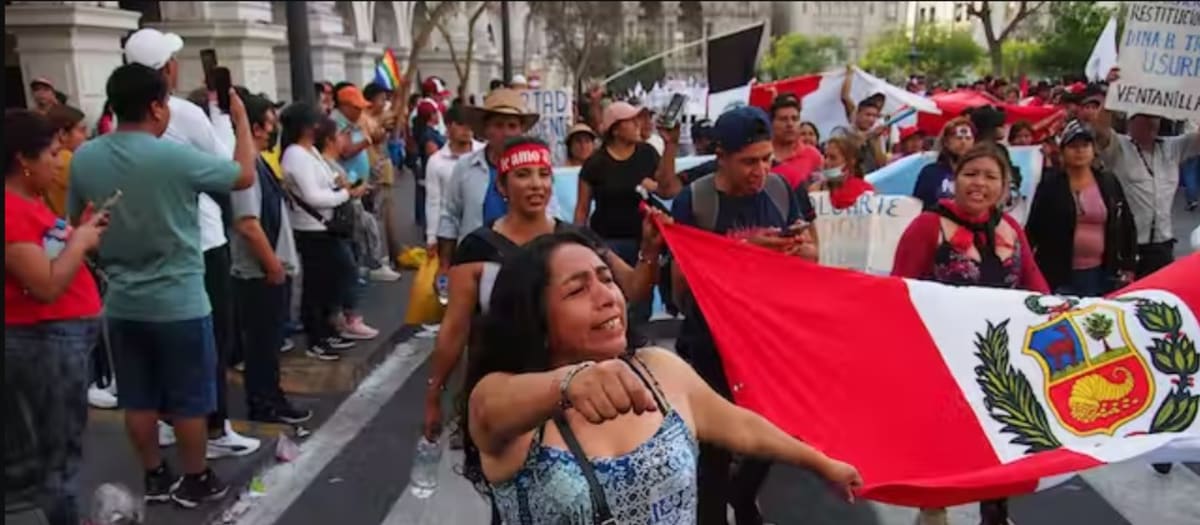
A movement on the march. Carlos Garcia Granthon/Fotoholica Press/LightRocket via Getty Images
This article is republished from The Conversation under a Creative Commons license. Written by Eduardo Gamarra, professor of politics and international relations at FIU. Peru protests: What to know about Indigenous-led movement shaking the crisis-hit country
Politics, Law & Society
By Contributing Writer
January 20, 2023 at 1:38pm
Eduardo Gamarra, Florida International University
Peru is in the midst of a political and civil crisis. Weeks of protest have culminated in thousands descending on the capital amid violent clashes and running battles with police.
Triggered by the recent removal from power of former leader Pedro Castillo, the protests have exposed deep divisions within the country and are being encouraged by a confluence of internal factors and external agitators.
The Conversation asked Eduardo Gamarra, an expert on Latin American politics at Florida International University, to explain the wider context of the protests and what could happen next.
What sparked the protests in Peru?
The immediate trigger was events on Dec. 7, 2022, that saw now-ousted President Castillo embark on what has been described as an attempted coup. But whether it was a “coup” is subject to debate. Castillo’s supporters say he was trying to head off a different type of coup, one instigated by Congress.
Castillo – a leftist, Indigenous former teacher from the country’s south – tried to shut down a Congress intent on impeaching him over corruption claims and accusations of treason. He called on the military to support him, and his intention was to form a constituent assembly to reform the country’s constitution. But his plan didn’t work. The military rejected Castillo’s ploy, and Congress refused to be dissolved and went ahead with its impeachment vote, removing him from power.
The events of that day set off the protests that have built in momentum over the subsequent weeks. But while the events of Dec. 7 were the immediate trigger, it is important to understand that this crisis was long in the making.
What is the wider background of the political crisis?
The crisis is rooted in the nature of Peru’s political system. In part by design, the country’s constitution, which was adopted in 1993 but amended a dozen times since, creates ambiguity in who has the greater power – the president or Congress. Constitutionally, Congress is given enormous scope to limit executive power, including removal through impeachment. The idea was to serve as a bulwark against the excesses of authoritarian-minded presidents. But in reality, it encourages instability and a weak executive. The constitution is so ambiguously written that it also gives wiggle room for presidents who want to shut down Congress, as Castillo unsuccessfully tried to do.
More:
https://news.fiu.edu/2023/peru-protests-what-to-know-about-indigenous-led-movement-shaking-the-crisis-hit-country
How the US Economic War on Venezuela Fueled the Migrant Crisis
JANUARY 20, 2023
BY EDWARD HUNT
The U.S. economic war on Venezuela is one of the main reasons for the record number of migrants arriving at the U.S.-Mexico border, where there has been a surge in migrants from Cuba, Haiti, Nicaragua, and Venezuela.
Years of U.S. efforts to destroy the Venezuelan oil industry and overthrow the Venezuelan government has fueled the humanitarian catastrophe. As U.S. sanctions have pushed Venezuela into one of the worst crises in the hemisphere’s history, more than 7 million people have fled the country. Hundreds of thousands more have fled Cuba, Haiti, and Nicaragua, poor countries that have lost access to low-cost Venezuelan energy.
. . .
Trump’s Escalation
It was not until the Trump administration entered office, however, that U.S. officials began ignoring the warnings in order to wage an all-out economic war against Venezuela. During its four years in office, the Trump administration directed a major economic attack against Venezuela, first with economic sanctions against the country’s finances in 2017 and then with crippling economic sanctions against its state oil company in 2019.
Administration officials openly acknowledged that they were trying to overthrow the Venezuelan government. In 2020, then-Secretary of State Mike Pompeo proudly proclaimed that “we’re leading a 59-nation coalition to oust Maduro,” the Venezuelan president. Years later, John Bolton, who had spent little over a year as Trump’s national security advisor, acknowledged that the administration had backed a coup attempt in Venezuela.
As the Venezuelan economy collapsed in the face of the Trump administration’s economic war, many critics warned about the humanitarian consequences. For years, Mark Weisbrot reported that U.S. economic sanctions were accelerating the country’s economic collapse. In 2019, Weisbrot collaborated with Jeffrey Sachs on a study that estimated that U.S. sanctions had resulted in the deaths of more than 40,000 Venezuelans from 2017 to 2018.
U.S. sanctions “are a death sentence for tens of thousands of Venezuelans,” Weisbrot and Sachs wrote. Officials in the Trump administration responded to these criticisms by blaming the Venezuelan government for the country’s collapse, but they faced strong pushback, sometimes from U.S. analysts.
More:
https://www.counterpunch.org/2023/01/20/272039/
Profile Information
Member since: 2002Number of posts: 160,524